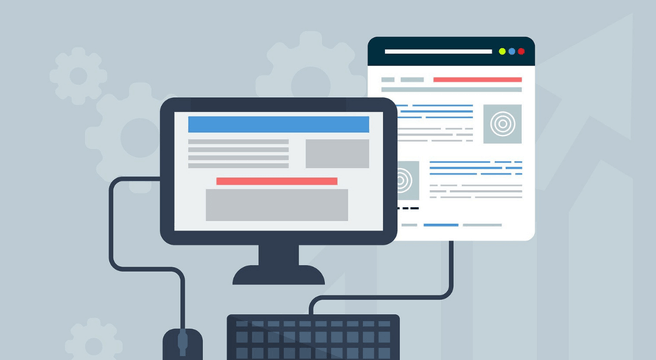Google’s search algorithm is a closely guarded industry secret, and rightly so. Yet for such a mysterious formula, they certainly give us webmasters plenty of information about staying on that algorithm’s good side.
If only there was a way to find out how to directly improve your site in a way that both your site’s visitors and Google would approve of?
There is, and it’s called Google Lighthouse. Want to better optimise your site and make it an enjoyable experience for all? Let Lighthouse illuminate your path….
What is Google Lighthouse?
Google Lighthouse is a free, open source tool for gauging the overall technical quality and user experience of individual web pages. Lighthouse produces in-depth, yet digestible reports which are designed to help you improve your website’s performance, usability, and search engine optimisation, page by page.
You can run a Lighthouse report on any web page, so you can even use it to understand how your competitors’ websites perform too. You can also run reports on pages that require authentication or those that contain web applications.
Lighthouse results give detailed instructions on what things your web page is “doing right” and what things need improvement. Lighthouse results are broken down into 5 sections, the first four of which get a numeric score out of 100:
- Performance – Provides metrics about the page’s loading speed and suggestions (dubbed “Opportunities”) to improve web page usability.
- Accessibility – Provides automated pointers about improving the page’s accessibility for those using assistive technology like screen readers or alternative input devices.
- Best Practices – Provides information about how well modern web development and security best practices are implemented.
- SEO – Provides input on factors relating to search optimisation and pointers about how to improve the page’s search ranking
- Progressive Web Apps – This one’s just for those who are looking to provide a mobile app-like experience through that web page, via the browser. m.Uber and Pinterest are good examples of this – their developers have made the app experience and the browser experience remarkably similar.
The aim here is to reach 90+ scores across the board on the first 4 factors. However, I grant you that this isn’t always possible, and it’s heavily dependent on what your web page does and how your site is set up. Even some of Google’s own web pages don’t reach this lofty goal, so don’t feel disheartened if your own site’s scores aren’t great. My advice? Use Lighthouse’s suggestions to pursue gradual, meaningful improvement rather than perfection.
How to Access Google Lighthouse Reports
Though there are a number of ways to access Lighthouse reports, I’ll just cover the most straightforward method: installing the Lighthouse Chrome Extension.
Simply open or download Google Chrome for desktop, navigate to the Lighthouse Chrome extension, and install it. Once installed, you’re ready to run your first report.
In Chrome, head to the page that you want a Lighthouse report about. Turn your attention to the top right of the screen – you may see the orange Lighthouse icon near or next to the end of the address bar. If you don’t see it, you may need to click the jigsaw puzzle piece icon to expand all of your Chrome extensions; the orange Lighthouse icon should appear in this list.
Wherever you see the Lighthouse icon, click it. This will bring up a blue button that says “Generate Report”. Click that and another tab will open ready to load the report. After a moment, the report will load and it’s ready for you to peruse.
What’s the Difference Between Lighthouse and PageSpeed Insights?
If you’ve used PageSpeed Insights (PSI) before, then Lighthouse may feel very familiar. Indeed, the two tools share a lot of parallels, covering many of the same metrics and scoring elements using the same “points out of 100, broken down into red, amber, green” system. However, if you run the same page through Lighthouse and PageSpeed Insights, it’s likely that you will see some subtle differences in responses given.
Why? Because the two tools are doing some similar things in different ways.
Lighthouse is all about measuring every website by the same yardstick, which it can only do by maintaining carefully managed, consistent lab conditions. Therefore, the data you see in Lighthouse is generated by analysing the page through an evenly throttled internet connection for absolute consistency. Lighthouse also provides much broader insight than PSI, with advice on improving your page’s SEO, accessibility and web development best practices.
PSI, however, uses a mixture of Lighthouse lab data and real-world data sourced from the Chrome User Experience Report. Additionally, when running a PageSpeed Insights report, no throttling takes place – the page is just loaded normally and analysed. These two factors mean that a PageSpeed report is likely to provide a slightly more “real-life” picture of the page being tested. PSI provides much less information than Lighthouse does, focusing solely on the page’s speed and performance.
Google Lighthouse vs. PageSpeed Insights: Which Should I Use and When?
Anyone in charge of a website’s general online wellbeing should know about both PSI and Lighthouse, as well as how they interact. But the question of “should I use one or the other” depends heavily on what you are trying to achieve:
- PageSpeed Insights is purely a performance test. If you want ideas about how to speed up your page’s loading times or you want an indication of how your page stacks up against the new Core Web Vitals[6] , then PSI is more than enough. Core Web Vitals are a pivotal part of the Page Experience Update, due some time during May 2021.
- If you’re looking for more in-depth ways to optimise your site for search; ways to stay in line with web development best practices; or how to make your site more accessible for people who use audio-visual or mobility aids, then Lighthouse is the way to go.
- Lighthouse is particularly useful if you want to test a web app rather than a standard web page, simply due to the Progressive Web App section of the report. This section tests your web app against web.dev’s Core Progressive Web App checklist.
- PageSpeed Insights uses a combination of real-life and lab data, meaning that it provides a slightly more realistic picture of how your page loads under normal conditions.
- If you’re quite techy, there are options to run Lighthouse through Node command line or through Chrome DevTools as well as through the Chrome extension. PageSpeed Insights can only be accessed through a browser.
And finally, one last important side note: please remember that when you enter a web page on either tool, the report is only specific to that page and not to the whole site. Each individual page will need to be tested separately.
In Conclusion
Google Lighthouse is an in-depth tool that will help you gauge the overall page experience of any page on the web. It’s absolutely invaluable in improving your site’s loading times, accessibility, search optimisation, and compliance with modern best practices.
Though it does share some similarities with PageSpeed Insights, there are some significant differences between the two. Which one you favour will largely depend on what you’re trying to achieve. Remember that Lighthouse emulates a purely lab-controlled level playing field, whereas PageSpeed Insights includes elements of real-world data. Both can be used in tandem to fully understand your website, inside and out.
If you want to run a quick report on your websites performance, try Yell’s free website checker. As well as issues like site speed and SEO, our tool checks for valuable social signals, content quality, link strategy, and more! And best of all, it’s totally free! Request your report here.






